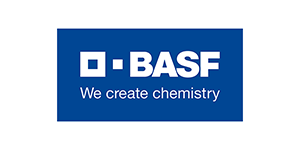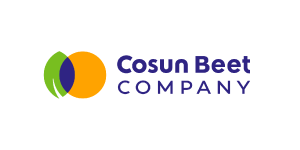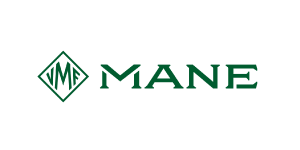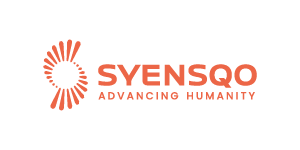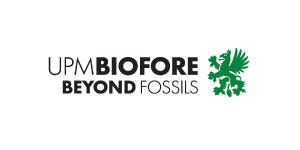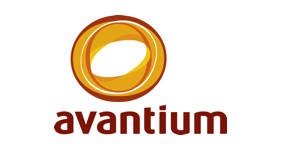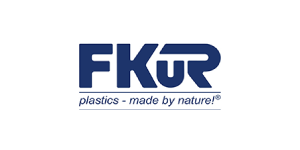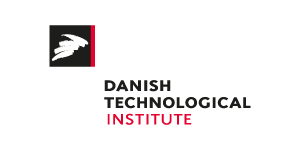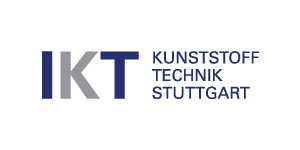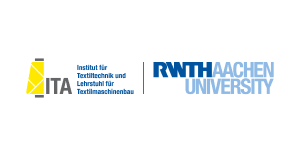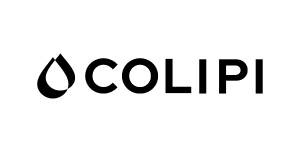Get to know the members of the Renewable Carbon Initiative. Together, they shape the way RCI supports and speeds up the transition from fossil carbon to renewable carbon for all organic chemicals and materials.
Brands
LEGO
The LEGO Group is committed to playing its part in building a sustainable future and making a positive impact on the planet our children will inherit. The LEGO Group have set targets to make its materials and packaging more circular and sustainable, reduce the carbon footprint of bringing LEGO® products to market and limit its use of resources.
Reckitt
Reckitt exists to protect, heal and nurture in the relentless pursuit of a cleaner, healthier world. We believe that access to the highest-quality hygiene, wellness and nourishment is a right, not a privilege. Reckitt is behind some of the world’s most recognisable and trusted consumer brands
Large Suppliers
ADM
ADM has created a new business unit to deliver plant-based ingredients to the chemicals and materials industry to support de-fossilization of value chain. Networking and active involvement with industry partners are vital in advancing the cause of adopting renewable carbon into the current fossil fuel raw material chain.
Arkema
Arkema is a worldwide leader in specialty materials. Building on its unique set of expertise in materials science, Arkema designs materials to address the ever-growing demand for innovative and sustainable materials, driven by the challenges of new energies, new technologies, depletion of resources, clean mobility and increasing urbanisation.
BASF (Board Member)
BASF SE is a German multinational chemical company and the largest chemical producer in the world. BASF operates in a variety of markets. Its business is organized in the segments of Chemicals, Plastics, Performance Products, Functional Solutions, Agricultural Solutions, and Oil and Gas.
Dow Europe
The transition toward a low-carbon economy remains one of the fundamental challenges of our society. At Dow, we have set an ambitious target of being carbon neutral by 2050. As a large producer and consumer of energy, this is a complex challenge and one we are determined to meet. In addition to continuously finding ways to reduce emissions from our operations, we are collaborating to invest in new technologies and processes that will decarbonize our industry.
Givaudan (Board Member)
Driven by passion and innovation, Givaudan Fragrance & Beauty aims to bring delightful and memorable sensorial experiences to consumers around the world. Currently present in all major markets, we strive to be the creative partner of choice for customers not only in personal, fabric, hygiene and home care but also in fine fragrances and overall beauty. The Company is driven by its inspiring Purpose of creating fragrances and beauty products for “happier, healthier lives with love for nature”.
IFF (Board Member)
Inclusive Solutions for the planet and its people. Delivering the needs of today while protecting tomorrow. Above all, we know that we’re borrowing this planet and our decisions must always consider that. With an ever-increasing population, massive challenges in food, health and wellness and an increasing interest from consumers about what’s in their products, we focus on reducing our footprint and extending our handprint, or our positive impact on the world.
MANE
From a family adventure, which began in 1871, when Victor MANE started producing fragrant materials from regional flowers and plant, the small distillery which has continually been run by the MANE family grew successfully to become one of the leading Fragrances and Flavours companies with over 50 R&D centres and its 27 manufacturing sites worldwide.
Stepan
Stepan Company (US) serves a range of markets from consumer products such as laundry detergents, hard surface cleaners, disinfectants, shampoos and body wash; to customized solutions for the agricultural, oilfield and construction markets; polyurethane polyols used in the thermal insulation market; and high purity esters, fats and oils for the pharmaceutical, medical nutrition and dietary supplement industries.
Südzucker
Südzucker is a multinational corporation whose sugar, special products, starch and fruit segments are key food industry players, while its CropEnergies segment is the EU’s leading ethanol producer. Südzucker AG, based in Mannheim, is the parent company of the Südzucker Group and also the largest operating company.
Sulzer
The Chemtech division of Sulzer is the global market leader in innovative mass transfer, static mixing and polymer solutions for chemicals, petrochemicals, refining and LNG. We are steering the way in ecological solutions such as bio-based chemicals, polymers and fuels, recycling technologies for textiles and plastic as well as carbon capture and utilization/storage, contributing to a circular and sustainable economy.
TÜV Austria
Competence, diversity, international orientation and tradition form the basis of the service portfolio for integrated safety, quality, environmental and technical resource management. TÜV AUSTRIA creates safety and added value with all its activities. For our customers and partners, for our employees.
Documents produced by TÜV AUSTRIA are recognised throughout the European Economic Area and beyond in many countries of the world. This provides a high degree of legal security and acceptance in the economy, with authorities and in the public..
Uniper
“Uniper is an international energy company who announced the strategic decision to be carbon neutral within the European energy generation by 2035 and to provide decarbonization solutions to its customers.”
The innovation team members are active in the carbon capture topic since 2004 and have extended their activities to carbon utilization in 2016.
SME
Fibenol
Fibenol is at the forefront of creating sustainable biomaterials, offering a solution for a more environmentally friendly future. We are committed to moving beyond fossil-based chemicals and instead focus on producing renewable biomaterials using lower-value hardwood sourced from certified forests. Through wood fractionation, Fibenol is revolutionizing the wood processing industry.
FKuR Kunststoff
Reuse, recycle, close the loop! Our contribution to the circular economy.
For us, it has long been clear that nature should be the model for all of us. Because everything it produces is needed, used and recycled. There is no waste, only valuable resources. If the life cycle of plastic products is modeled on the closed cycle of nature, we conserve it sustainably.
Futerro
Since 1992, Futerro has been a pioneer and world leader in bioplastics with the development and production of Poly-Lactic Acid. PLA is a well-recognized bio-sourced polymer able to replace a large number of traditional petro-based plastic used in applications, it can also be fully chemically recycled into monomer.
SCS Global Services
Since 1984, SCS has been a pioneer and leader in the field of sustainability standards and third-party certification, working across the economy in a cross-section of industries including climate mitigation, green building, natural resources, product manufacturing, food and agriculture, consumer products and more.
Research Institutes
Institut für Kunststofftechnik – University of Stuttgart
The Institut für Kunststofftechnik focuses its attention on plastic products. Plastics engineering concentrates on the interaction between material, process and product, in order to increase manufacturability and usability properties, intenting to create innovative plastic products which are resource efficient and marketable.
ITA – Institut für Textiltechnik of RWTH Aachen University
ITA Group International Centre for Sustainable Textiles focuses its core competence on the goal of ensuring the holistic biotransformation of textile technology and thus the use of biological principles for cycle-oriented value creation processes.
Start-Ups
amynova polymers
amynova polymers (DE) is a company that develops, researches and produces amylofol®, an innovative starch-based biopolymer. Due to its unique properties, amylofol® has great potential for increasing the efficiency of crop protection and fertilisation in agricultural production, as a barrier coating on paper and packaging, and for dust binding in various industrial and environmental applications.
BioBTX
BioBTX creates sustainable BTX from non-food biomass and plastic waste. BTX are vital components needed to create high performance materials, such as new plastics. As a result of sustainable BTX, plastics can become part of a circular economy. In addition, plastics production can liberate itself from fossil resources.
ChainCraft
ChainCraft is a start-up company converting food residues (waste) into medium chain fatty acids using proprietary fermentation technology, which are or can be used in various markets ranging from animal nutrition, flavours & fragrances and food additives, agriculture, and the chemical industry to synthesize ingredients for detergents, personal care, lubricants, etc.
Clariter
Clariter’s upcycling technology transforms problematic plastic waste into climate-neutral renewable carbon-based petrochemicals. These are used by industry to create a multitude of sustainable crude oil-alternative products. Our solution is in direct alignment with the Renewable Carbon Initiative’s vision of empowering stakeholders to phase out fossil resources and replace them with renewable carbon.
Dioxycle
Dioxycle (FR) is a start-up company founded on the principle that innovative advances and a do-it-yourself mentality can create cost-effective ways to convert waste carbon emissions into valuable feedstocks. At the heart of their solution is a proprietary electrolysis technology that breaks down carbon emissions and reconstructs them into ethylene – the world most sold petrochemical, providing a sustainable alternative to traditional chemicals and fuels while cutting down atmospheric carbon dioxide levels.
Econic Technologies
Econic is a catalyst and process technology company, focused on converting CO2 into usable carbon, initially in the polyurethanes industry, through polyols, and in surfactants. The technology has the potential to become a platform technology to be used in wider range of polymer systems.
TripleW
TripleW is pleased to join the Renewable Carbon Initiative to realize our shared goal of reducing dependence on fossil-based carbon. We believe that, whenever possible, products should be based on renewable carbon, with “Renewability” as the key to achieving a sustainable circular bioeconomy.










